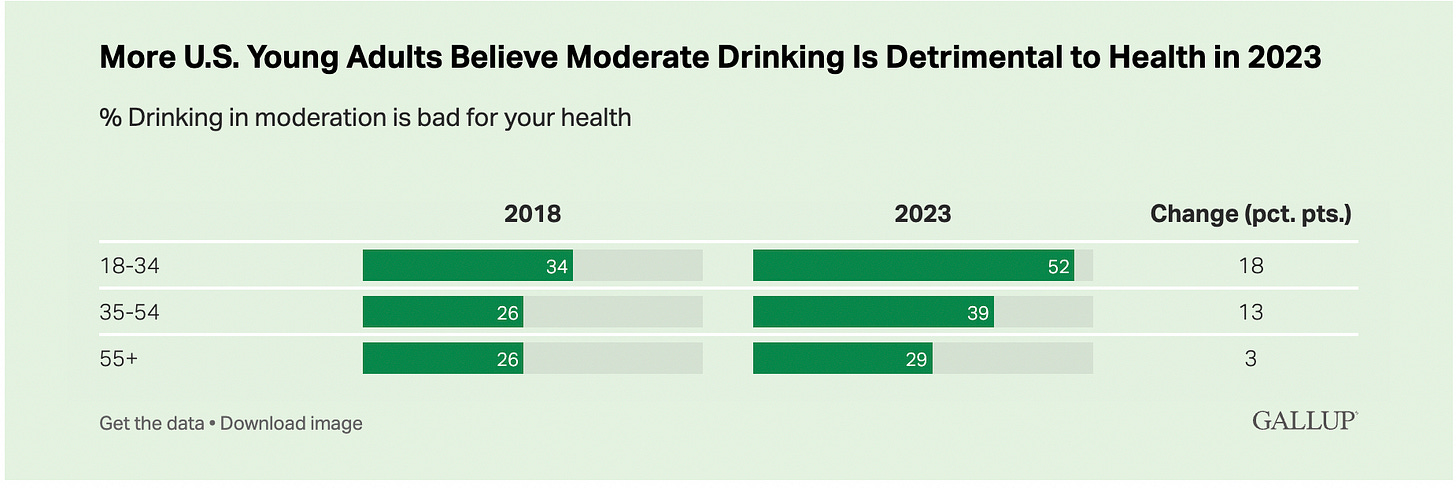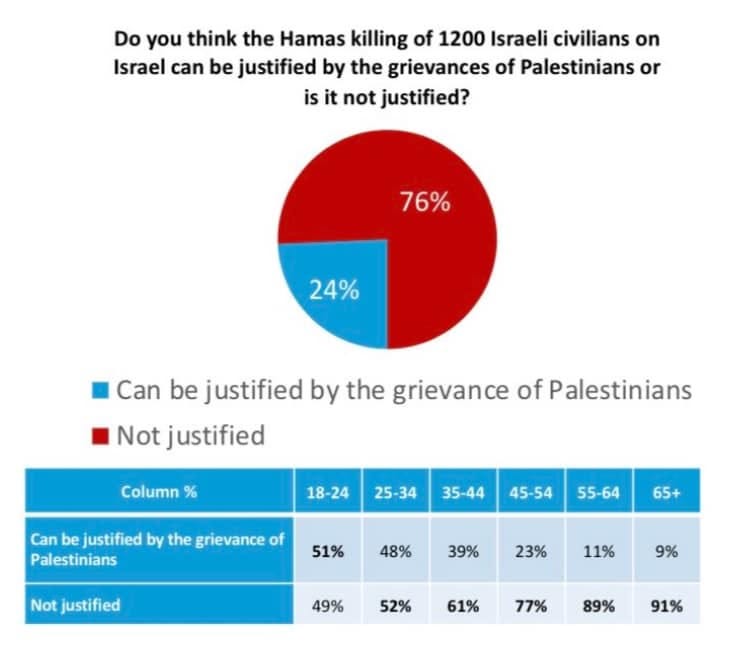How To Combat The Effort to Kill Off The American Wine Industry
Something must happen soon and the models for this effort are available
The fanatics in white coats and their enablers are winning. If the American wine industry doesn’t begin to push back against their radical anti-wine agenda the fall in wine consumption among the youngest drinkers we see today is going to look like the glory days when we look over our shoulder tomorrow.
According to Dr. Carina Ferreira-Borges:
“No level of alcohol is safe for our health. The only thing that we can say for sure is that the more you drink, the more harmful it is — or, in other words, the less you drink, the safer it is.”
Surely we can say more than that.
The question is will the U.S. wine industry muster the strength and initiative to open its mouth and start doing some talking?
Dr. Ferreira-Borges is the Regional Advisor for Alcohol and Illicit Drugs at the European office of the World Health Organization (WHO). Because of the prominence and stature of WHO, the Doctor’s comments carry a great deal of weight. Her comments are also the motivation for a recent Congress in Toledo, Spain where a number of very fearful members of the European wine industry gathered to hear scientific pushback against this notion that having a glass of wine with your dinner is gonna kill you or at least render you forever harmed.
That Congress, the rather pointedly named, Lifestyle, Diet, Wine & Health Congress, was recently written about by Felicity Carter at WineBusiness.com. Being the outstanding journalist she is, Carter’s article got right to the heart of the matter early on by quoting Frederico Falcão, President of ViniPortugal.
“We need these kinds of events to know the facts and use these facts to defend ourselves from the people that attack us without any scientific knowledge.”
Fredrico is talking about the WHO, as well as other institutions located across the globe, that appear to have as their goal to use sketchy scientific and survey data to foster a significant reduction in alcohol consumption and, in the process, significantly damage the ancient wine producing industry in Europe and beyond. Fredrico’s primary concern is with the damage that the WHO’s messaging will visit upon his Portuguese vintners, which is exactly where his concern ought to be. This concern was also primary for the numerous other members of the European wine trade who traveled to Toledo to hear doctors, researchers, and scientists examine both the fraud at the heart of WHO’s anti-alcohol declarations as well as the evidence that the moderate consumption of wine is a net benefit to individuals and the world at large.
But here’s a bit of interesting information: I’ve been told there were a mere 3 representatives from the U.S. at the Congress. This is very disturbing. It’s very unfortunate. And the attitude that caused this kind of truancy better get fixed, and fast.
The problem of diminishing wine and alcohol consumption in the United States is almost entirely a result of younger Americans taking up negative attitudes toward wine and alcohol. My question is just how far gone is this younger demographic and can it be turned around? I want to present you with two unrelated, but also related, recent surveys.
The first is from Gallup’s recently released Consumption Habits Survey. In it they ask, Is drinking alcohol detrimental to your health?
Note the 2023 responses by youngsters aged 18-34. You are reading that correctly. Fifty-two percent responded in the affirmative. More importantly, that is up from 34% just five years ago. That’s a 50% increase in just five years of young folks saying alcohol is detrimental. It’s tempting to ask what happened in the past five years to cause this kind of sea change in attitudes among the younger set and point directly at the most important event of that timeframe: The COVID-19 pandemic. But I’m not sure.
Now, consider this recent survey:
Fully 51% of 18 - 24-year-olds queried in this Harris/Harvard survey believe the recent slaughter of Jews by the hands of Hamas “can be justified by the grievances of Palestinians”. Yes, this is the kind of disturbing information that shocks and saddens me and ought to shock and sadden everyone. But follow me here: Both these polls suggest there is a monumental loss in nuanced and critical thinking among younger adults. And this kind of uncritical exploration of ideas and principles can only lead to one outcome: draconian actions.
Draconian actions. If you believe alcohol is generally harmful, and if you believe that mass murder can be justified, it’s not hard to imagine an accepting embrace of the comparatively less drastic measures presented to merely tamp down on drinking by those who merely have good intentions. And this is particularly so if you aren’t drinking much to begin with.
So what if having a drink while out at the restaurant becomes an existential threat to your life as a result of the measure of drunk driving being reduced from a .08 BAC to a .05 level? So what if the federal government declares that anything more than 2-5 drinks per week will kill you? So what if a little more real estate is taken up on labels if it’s merely to declare that drinking the Chardonnay behind that label will surely give you cancer? If you can ignorantly agree that drinking is bad for you or that the slaughter of 1,400 Jews is justified, you can easily embrace these kinds of actions. And with these actions come an even more rapid downward spiral of wine consumption. And with a downward spiral of wine consumption come fewer wineries, distributors, and wine retailers along with fewer wine jobs
I’m not unsympathetic to those of you who see me linking the two surveys above and thinking that Mr. Wark has a firmly fitting tin foil hat attached to his head. I admit I’m not fully qualified to attempt a sociological and psychological assessment of young adults. But I do know this: Extreme attitudes (and both the “drinking-bad-for you” and the “killing-jews-is-justified” attitudes are extreme) are not embraced as a result of single cultural and societal events like the COVID pandemic or the George Floyd murder or the Donald Trump presidency. They are the result of a myriad set of events that, when combined over a timeframe, lead to this kind of extremism. I also know that a single effort to combat this kind of extremism within a group won’t be the antidote to the moral and critical thinking crisis that has surely engulfed a good part of America’s youth.
However, where alcohol and the wine industry are concerned, making no effort to combat the emerging black-and-white thinking among the white coats, their enablers, and the young who appear to be gobbling up their declarations that wine will give you cancer and kill you will only lead to a continued decline in wine consumption and the fortunes of the wine industry. Doing nothing is simple industry malpractice.
What’s to be done?
The Toledo Conference, while focused on academic presentations, was organized by a variety of Europe-based organizations, most of which are connected to that continents wine industry and who appear to have the rational fear that if the anti-wine information is allowed to continue to be spread their livelihoods will be threatened.
Among those bodies that organized the Toledo Congress is Wine in Moderation, a organization founded by the European wine industry in 2008 with the goal of inspiriing moderation when drinking wine. The Wine In Moderation organization went on to found the Wine Information Council that has the goal of disseminating research on the health, social and cultural aspects of wine drinking around the world. The Europeans are way ahead of the Americans in combatting the White Coats.
Then, in Canada, we have the recently formed Canada Association for Responsible Drinkers (CARD). Founded this last September, CARD announced: “Canadians have a right to accurate information that enables them to make informed choices regarding responsible alcohol consumption and what amount of consumption, if any, is appropriate for them. We support responsible drinking and moderation… and always will.”
As with the Toledo Conference and Wine In Moderation, CARD is funded almost entirely to the Canadian alcohol sector with significant contributions and support of its wine sector.
The American wine sector is so conspicuous in its absence of addressing the current threat to its existence that the situation can only be described as a profound dereliction of duty. And yet we know that the shape of a proper response is perfectly obvious:
1. A non-profit organization to combat misinformation and disinformation surrounding moderate consumption of wine must be formed.
2. The Organization must have as its goal influening policymakers and young Americans that moderate consumption of wine is not only safe for most groups but an essential part of a life well lived.
3. The funding for the organization must come from the largest trade associations (Wine and Spirit Wholesalers of America, The California Wine Institute, Napa Valley Vintners, American Beverage Licensees, etc), from the largest wine production companies (Gallo, Constellation, Treasury, The Wine Group, Trinchero, Jacson Family, Delicato, etc), The largest wine wholesalers (Southern Glazers, Republic National, etc), and from large retailers (Total Wine, Costo, Specs, etc).
4. The Organization must be fully staffed with an exprienced Executive Director, a fundraising team, and Events Director, a Communications Director, a Director of Research and a Trade and Government Relations Director.
5. A Conference must be immediately organized to present the case to the trade and media against the “No Safe Amount” rhetoric that is being pushed by WHO and that is threatening to become the policy of various countries and to galvanize support for this new organization.
6. The Organization must be committed to a long-term effort with a decade of work being the short-term horizen.
I can say that I am aware of such an effort that is in its infancy. Talks and discussions are happeing behind closed doors in an informal way. It’s aboslutely critical that these early discussions turn into something substantial as soon as possible.
The moderate consumption of wine is good for you. The moderate consumption of wine will imporove the lives of most people. The moderate consumption of wine is proven to not be detrimintal to your health. The benefits of moderate wine consumption must always be presented alongside any information concerning the risks that come with overconsumption. Wine production and moderate wine consumption is a bedrock element of Western Civilization and, is a practice that has and is spreading far beyond the the West and this is a good thing.
This is the message that must be spead for the sake of the future of the wine industry in the United States.





No level of car driving is safe for our health. The only thing that we can say for sure is that the more you drive, the higher the risk — or, in other words, the less you drive, the safer it is.” Fill in your own examples. The point is that everything has some risk. The question is do the benefits outweigh the risk. Just because there is a risk, it doesn't mean you should completely stop doing the action
Much of the neo-prohibitionist movement has been driven by the Canadian Addiction Foundation's report, which was based on cherry-picked literature reviews. One glaring omission were observational studies such as the one published in Cambridge Press in Feb 2022 comparing types of drinks consumed and mortality rates. It was based on 350,000 studied subjects in the UK Biobank. The findings were that two glasses of wine per day leads to optimum health outcomes. However, no such correlation exists for beer, cider, and distilled alcohol. The only drinks with better outcomes are two other phenol-rich beverages: coffee (4 servings) and black tea (6 servings). As this study hadn't made its 2 year path into the literature reviews, it was either unknown or ignored by the Report authors. https://www.cambridge.org/.../005276CE44010E3FDFCC5736368...
Also here is a blind study showing that there is no measurable difference between red wine and denatured red wine in health outcomes. https://www.frontiersin.org/.../10.../fnut.2022.890066/full
The metabolized polyphenols in food and drink are highly beneficial to our health. The reality is that wine drinkers are being mislead about its scientifically proven benefits, and are potentially switching to other alcoholic drinks that are truly unhealthy